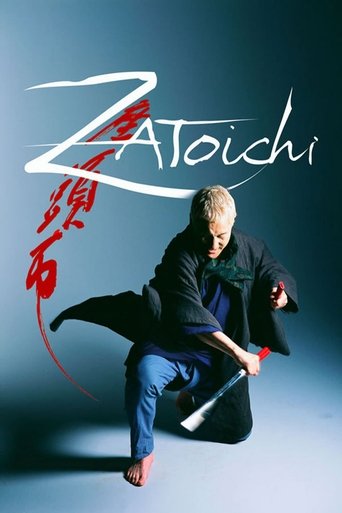
06 Sep 2003

Zatoichi
Blind traveler Zatoichi is a master swordsman and a masseur with a fondness for gambling on dice games. When he arrives in a village torn apart by warring gangs, he sets out to protect the townspeople.
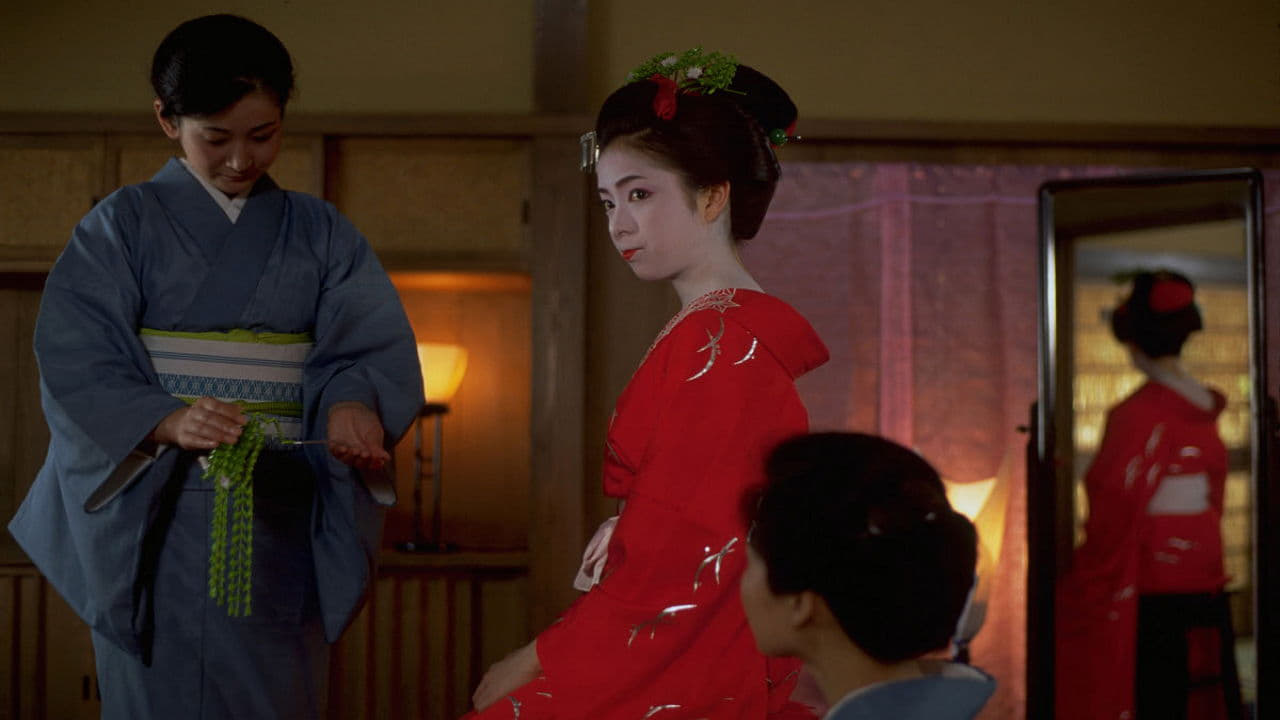
Set in a Kyoto geisha house during the post-WWII era, the young Omocha begins her rigorous apprenticeship within the traditional community of geiko and maiko. She must navigate complex internal rivalries and a strict social hierarchy while the house struggles to maintain its customs. As modern society shifts around them, the residents face the increasing pressure of Japan's changing cultural identity.

Tokiko aka Omocha

Satoe

Somemaru
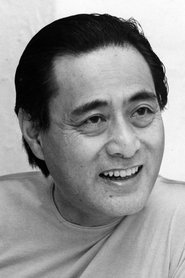
Yoshikawa

Terucho

Michiko

Hanaman's owner
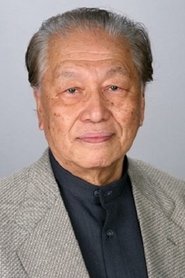
Kitayama

Mikami

Kayama

Kosaka

Police detective

Tokiko's mother

06 Sep 2003

Blind traveler Zatoichi is a master swordsman and a masseur with a fondness for gambling on dice games. When he arrives in a village torn apart by warring gangs, he sets out to protect the townspeople.
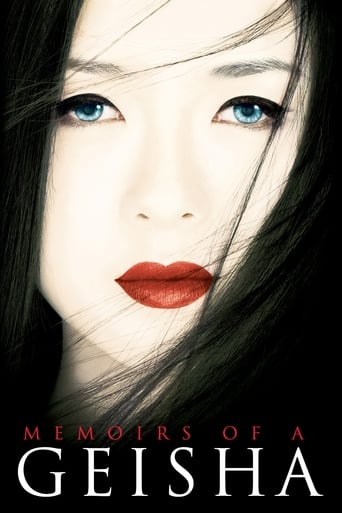
06 Dec 2005

In the years before World War II, a penniless Japanese child is torn from her family to work as a maid in a geisha house.
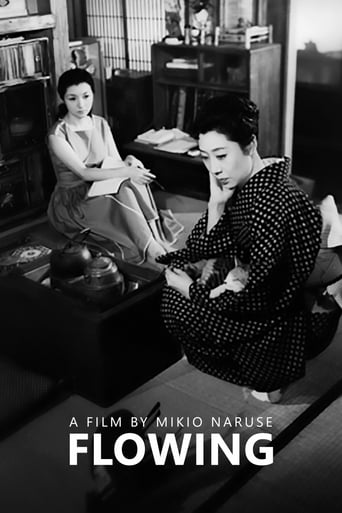
20 Nov 1956

Otsuta is running the geisha house Tsuta in Tokyo. Her business is heavily in debt. Her daughter Katsuyo doesn't see any future in her mother's trade in the late days of Geisha. But Otsuta will not give up. This film portraits the day time life of geisha when not entertaining customers.
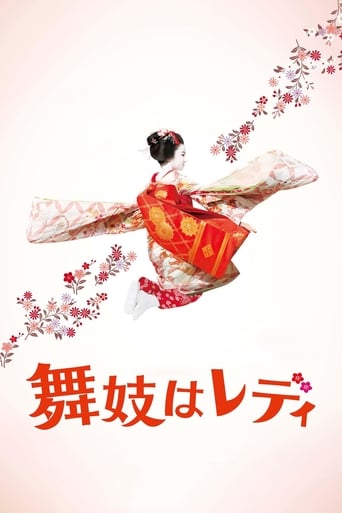
13 Sep 2014

Country bumpkin Haruko only ever wanted to become a maiko, an apprentice geisha. Initially rebuffed for lack of references, Haruko's strong accent intrigues a linguistics professor, who undertakes to coach her.
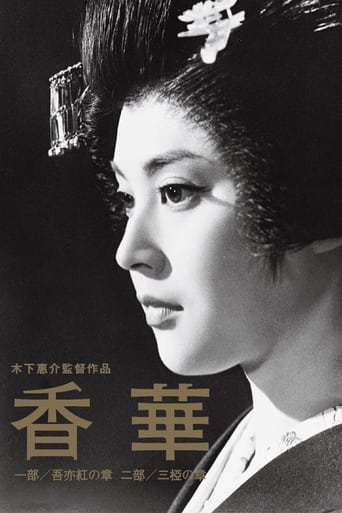
24 May 1964

After her mother runs away from home, Tomoko is raised to be a geisha. One day Tomoko meets her mother in a red-light district in Tokyo and her life deeply gets in trouble.
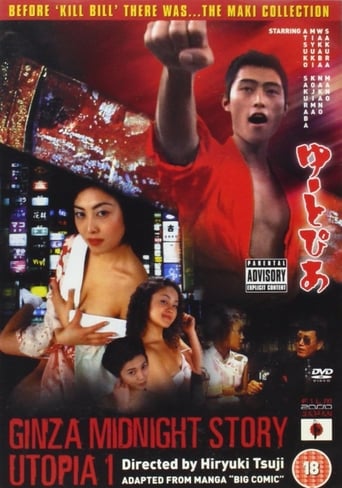
21 Jul 2000

Japanese gangster drama set in the exclusive Ginza district of Tokyo, following Haruka (Atsuko Sakuraba), a young geisha who is attacked by an influential businessman who plans to abduct her. When she is rescued by the members of a club called 'Utopia', Haruka joins them and becomes a hostess, rapidly establishing herself as one of the most sought-after geisha's in Ginza. At the same time, Haruka learns of a plan by a corrupt, gangster-owned club to set itself up as a rival to Utopia. Such is her loyalty to the club that first helped her, she is willing to do anything to protect it.

25 Aug 2000

In a continuation of "Utopia: Midnight Story, White Flower Bud" Haruka Ichijou follows through in her vow to become the No1 Geisha. She develops intricate schemes and mindful manipulations in changing her "Papa-san's," or Sugar Daddies, on her way up the modern geisha ladder. After she pits one against the other, the men begin to compete for her in elaborate and very expensive ventures, and their fight to win her for their prize in all-consuming frenzy becomes the focus for the No1 Spot. A barrage of young geisha's karate fighting seals their fate at last!
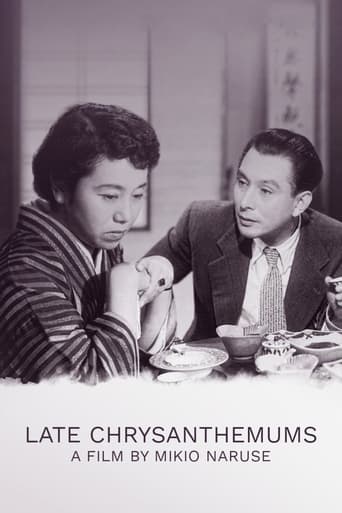
15 Jun 1954

With delicate, unobtrusive strokes, Naruse evokes both the humor and bitterness of his characters’ dilemmas, in this bleak, compelling poignant portrait of a quartet of aging geishas contemplating their troubles with men and money.

28 Jul 1961

A young girl is rigorously trained in the feminine arts so that she can become a geisha. As she struggles through life, she learns to live not just as a woman but as a complete person.
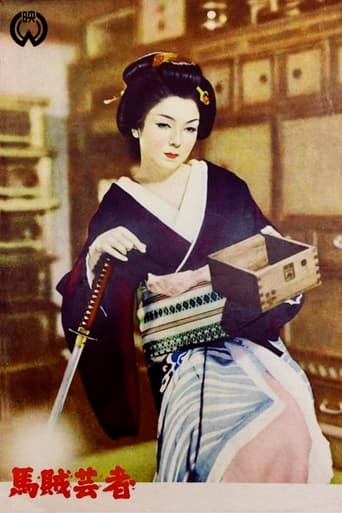
15 Nov 1954

Based on the original work of Akutagawa Prize-winning writer Ashihei Hino, the film depicts the love of the proud geisha Nobukichi Hakata in the early Taisho era.
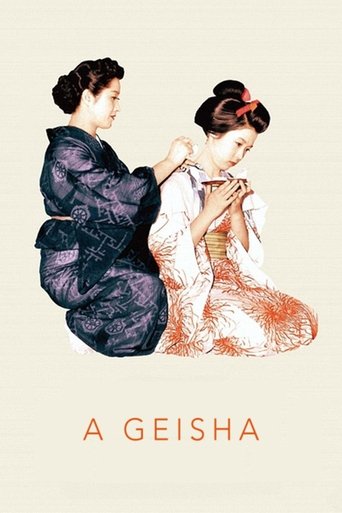
12 Aug 1953

Fleeing a distressing family situation, Eiko, a very young girl, becomes an apprentice to Miyoharu, a veteran geisha. Both, determined to preserve their professional integrity, must face the selfishness and ambition of several petty people.
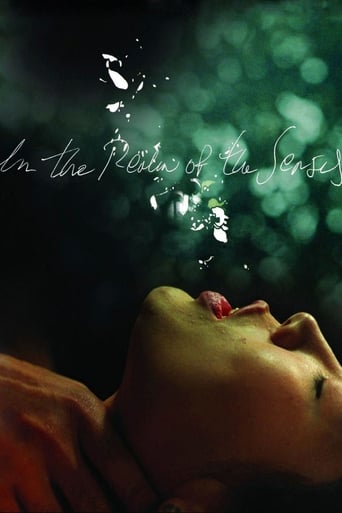
15 Sep 1976

A passionate telling of the story of Sada Abe, a woman whose affair with her master led to an obsessive and ultimately destructive sexual relationship.

13 Feb 1971

Tells the story of the samurai Gengobe, who seeks revenge after falling prey to the schemes of a geisha and her husband.
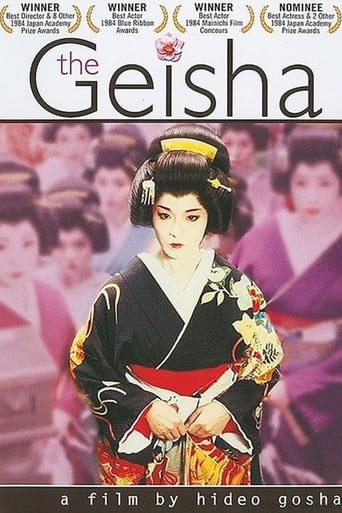
10 Sep 1983

Yokiro was the most successful Geisha house in Western Japan during the first half of the 20th century and remains open to this day. At its peak, it was home to over 200 geisha, however behind the fabulous facade, there were many battles - between family members, men and women, and with the Yakuza. Momokawa was sold to Yokiro at age 12, and despite being the top geisha, her many complicated relationships provide unending challenges throughout her glamorous but turbulent life.
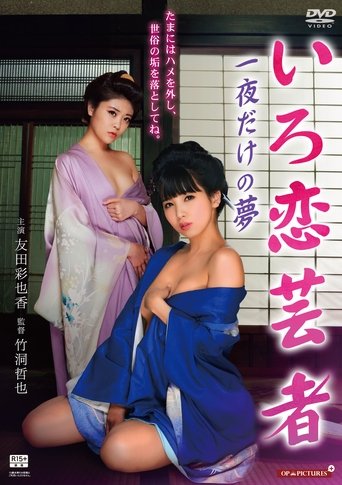
01 May 2015

Shizuku and Tamami are geisha in Atami who are rivals at the same okiya (tea house). Shizuku is a miser who will use any tool necessary to get what she wants, including sex. On the other hand, Tamami believes in doing things the traditional way, with class. With opposing personalities, these two are always at each other’s throats. Tamami continues to blame herself for her mother’s suicide while Shizuku never knew parental love and doesn’t have good luck with men. Learning each other’s past, the two seem to have built a strong bond… that is until Kenzo, the event producer of the 2020 Tokyo Olympics comes to Atami. Kenzo will be making a movie about traditional Japanese culture for PR and would like to have either Shizuku or Tamami in it. Tamami sees this as an opportunity to fulfill her dead mother’s dreams, while Shizuku sees this as a path to getting rich. The two compete for who will get the contract for this dream opportunity.
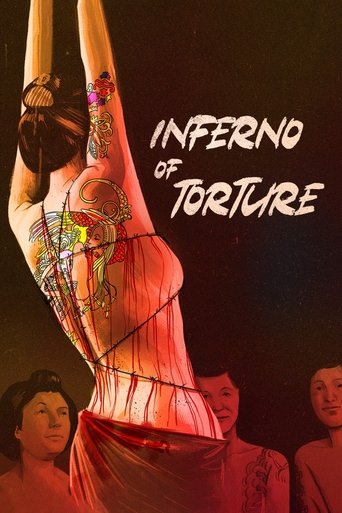
02 May 1969

Japan nineteenth century. High demand for tattooed geisha generates an entire industry for their "production". Europeans pay more for tattooed beauties. Against this background, and considering the gorgeous tattooed women develop the history of confrontation between two highly skilled masters of tattoo.
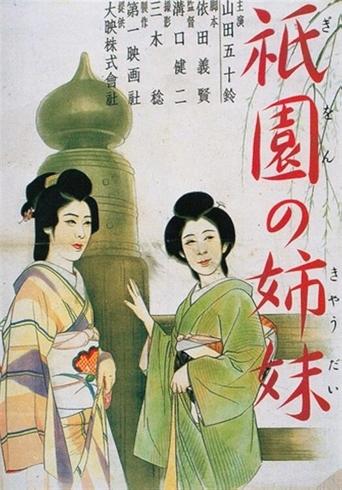
15 Oct 1936

Umekichi, a geisha in the Gion district of Kyoto, feels obliged to help her lover Furusawa when he asks to stay with her after becoming bankrupt and leaving his wife. However her younger sister Omocha tells her she is wasting her time and money on a loser. She thinks that they should both find wealthy patrons to support them. Omocha therefore tries various schemes to get rid of Furusawa, and set themselves up with better patrons.
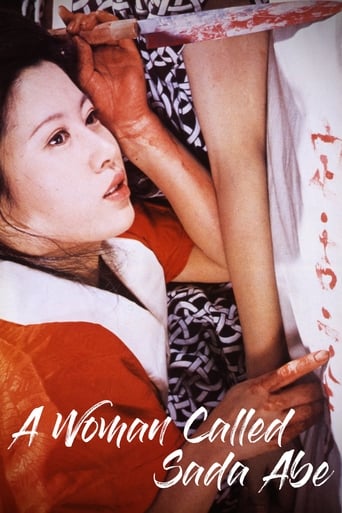
08 Feb 1975

The young and beautiful Sada Abe, the daughter of a rich merchant, is banished for losing her virginity after being raped by a college student. Sada wanders the city, becoming a geisha and eventually meeting Kichizo, a posh restaurateur who falls under her spell. Together, they embark on a week-long sexual escapade filled with dangerous obsessions. Their complete descent into each others desires culminates in a shocking crime of passion which captures the city's headlines. Based on a real event from 1936.
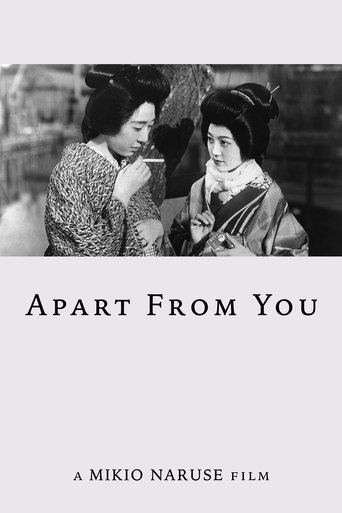
01 Apr 1933

An aging geisha, whose angry teenage son is ashamed of her profession, works alongside a young geisha, resentful of her family for forcing her into a life of ignominy.
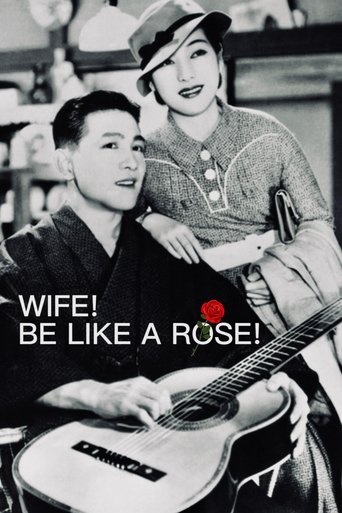
15 Aug 1935

Kimiko, a Tokyo white-collar working girl, lives with her serious, intellectual, haiku-writing mother. Kimiko seeks to marry her boyfriend but needs her absent father to act as the go-between and negotiate the marriage. Kimiko travels and finds her father living with a second family.